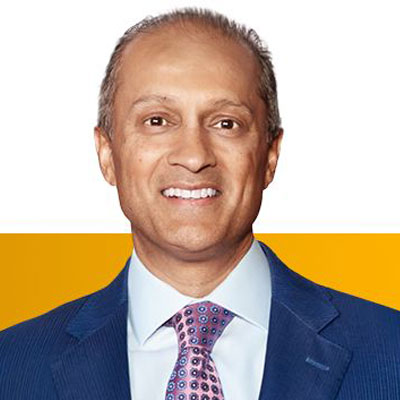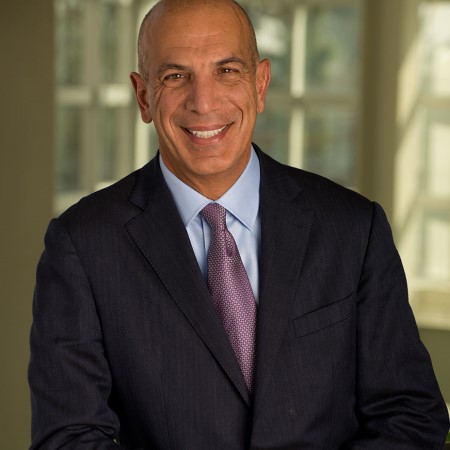Leading Medtech CEOs Say Health Equity, Environmental Work Will Outlast Pandemic
Executive Summary
The medtech sector’s drive to create a fairer health care system and a greener world will go on after the COVID pandemic, which has brought such issues into sharp relief. CEOs at leading companies discuss environmental, social and governance imperatives for their companies and the larger industry.
Concerns about health care inequities and the medtech sector’s environmental impacts have spiked during the COVID crisis, and they are not likely to subside with the end of the pandemic, industry leaders say.
“We’re learning, we’re developing principles, and we’re trying to problem-solve together,” said Mike Mussallem, CEO of Edwards Lifesciences Corp., during a panel discussion at AdvaMed’s recent MedTech Conference that touched on the health equity issue.
The pandemic has revealed racial disparities and health inequities across demographics, with hospitalizations, death rates and access to care unequally parceled out along racial and ethnic lines, according to findings from the Centers for Disease Control and Prevention.
“It’s not a topic of the day, but a topic that’s here to stay.” – Vlad Makatsaria
AdvaMed, which represents the biggest US medical device companies, set out to address such issues last October, putting forth a set of principles to guide industry and individual companies in their efforts.
Recommended measures include dissemination of information to promote unbiased treatment of patients, adoption of digital technologies such as remote monitoring to improve access to care, and partnerships with groups that represent the interests of patients of color.
“With these principles, our industry acknowledges the more active role we must play in breaking down barriers in communities of color to ensure that we don’t allow racial inequities to impact access to advanced medical technologies which save and improve lives,” said Stryker Corporation CEO Kevin Lobo, who chaired AdvaMed’s board of directors, in the principles statement.
 Kevin Lobo, CEO of Stryker
Stryker
Kevin Lobo, CEO of Stryker
Stryker
Mussallem said he’s proud of AdvaMed’s leadership in the area and that Edwards and many other companies have joined to take a closer look at the health equity issue. (Also see "Leveling The Playing Field: Edwards Dedicates $100M To Racial Equity" - Medtech Insight, 6 Aug, 2021.)
Data showing that people of color are underserved and undertreated raises the question of why these communities don’t trust health care systems, according to Mussallem.
“We’ve got a pretty big job to take on,” and it starts by looking inward at whether companies’ leadership and employees represent the patient communities they serve, the CEO suggested.
Similar questions can be asked about physician practices and subjects enrolled in clinical trials.
“We know there are gaps in all those areas, so we’ve got a lot of work to do but we’re very focused on doing exactly that,” Mussallem said.
 Mike Mussallem, CEO Edwards Lifesciences
Edwards Lifesciences
Mike Mussallem, CEO Edwards Lifesciences
Edwards Lifesciences
Vlad Makatsaria, company group chairman for Johnson & Johnson (Pty) Ltd Ethicon Inc.’s business, was of a similar mind.
“It’s not a topic of the day, but a topic that’s here to stay,” Makatsaria said. He noted that despite tremendous progress, 25% of surgical procedures done today end up with complications, and there are 19 million preventable deaths worldwide every year among people without access to surgery.
“Depending on where you are in the world and who you are, those numbers vary, and [our mission at] Johnson & Johnson, but also as an industry, is to make sure that everybody has equal access to health care, innovation, education.”
Joseph DeVivo, who leads the hospital and health system business for Teladoc Health, Inc., said the company formed the nonprofit World Telehealth Initiative to provide telehealth technology, equipment and services to impoverished communities throughout the world.
“What we’re doing through World Telehealth Initiative is placing robotic devices in clinics around the world so that doctors, from the comfort of their home or their office, can donate their time to be able to consult in complex sub-specialty situations,” DeVivo said.
At Medtronic plc, environmental, social and governance (ESG) is a “really big deal,” and not just because “everybody is doing it,” according to Geoff Martha, who succeeded Omar Ishrak as CEO last April. (Also see "Medtronic ‘Refreshes Brand,’ Announces New Environmental, Social, and Governance Targets" - Medtech Insight, 14 Oct, 2021.)
“There are two types of companies – there are companies doing it because they have to, and there are companies that do it because they really believe in it,” Martha said.
There are significant motivating factors. Martha said that employees increasingly want to work for companies that have prominent ESG programs.
By fiscal year 2026, Medtronic aims to have 45% of global management positions held by women and 30% of US management positions held by ethnically diverse talent.
‘High Stakes’ Sustainability
As world leaders gather this week in Glasgow to address the threat of climate change, the medtech industry also is engaging increasingly on environmental issues.
Tom Polen, who took the helm at Becton Dickinson AB in January 2020 and had to steer the company through the biggest health crisis in recent history, said BD is “passionate” about its 2030 sustainability goals.
All companies must have ESG criteria to be competitive, attract talent, and be a global citizen, Polen said at AdvaMed’s Medtech Conference, adding, “The stakes are high.”
According to Polen, “We believe very strongly there is value in taking leadership in those areas.” He noted the firm’s top priority of having a healthy, engaged and diverse workforce, as well as its vision, announced in December 2020, for reducing Scope 1 and 2 greenhouse gas emissions 46% by 2030, compared with a 2019 baseline, and achieving carbon neutrality across direct operations by 2040.
BD also is exploring more sustainable products, with plans to launch procedure trays made of biodegradable bamboo. The company makes 45 billion disposable medical devices a year, or eight devices per every human on the planet, Polen said.
The initiatives amount to a culture change at BD. According to the CEO, “We’re rally operationalizing it – it’s not pockets of projects, but it’s becoming really embedded in the way that we run the company, which is really what it’s going to take to move things to the next level.”
Medtronic released a 2021 Integrated Performance Report on 21 October that outlines ESG targets. Those include reducing package waste by 25% for targeted high-volume products by fiscal year 2025 and shrinking the impact of instructions for use through a 35% paper reduction compared with FY 2021 baseline.
Overall, the medtech sector has been slower than others to respond to sustainability demands, according to a 2021 Pulse of the Industry report from professional services multinational Ernst & Young Global Limited. (Also see "Asia Medtech Reg Discussions: COVID-19 Is A Golden Moment For Medtech And Governments To Learn How To Deal With Future Crises" - Medtech Insight, 5 Jan, 2021.)
The firm notes in the report that “as devices increasingly incorporate digital and electronic components, issues of waste move beyond single-use plastics and become more pressing. From manufacturing processes to packaging and recycling of products at the end of their shelf‐life, there are significant areas for MedTechs to focus on reducing not only CO2 but the broader environmental consequences of their products,” EY says.
